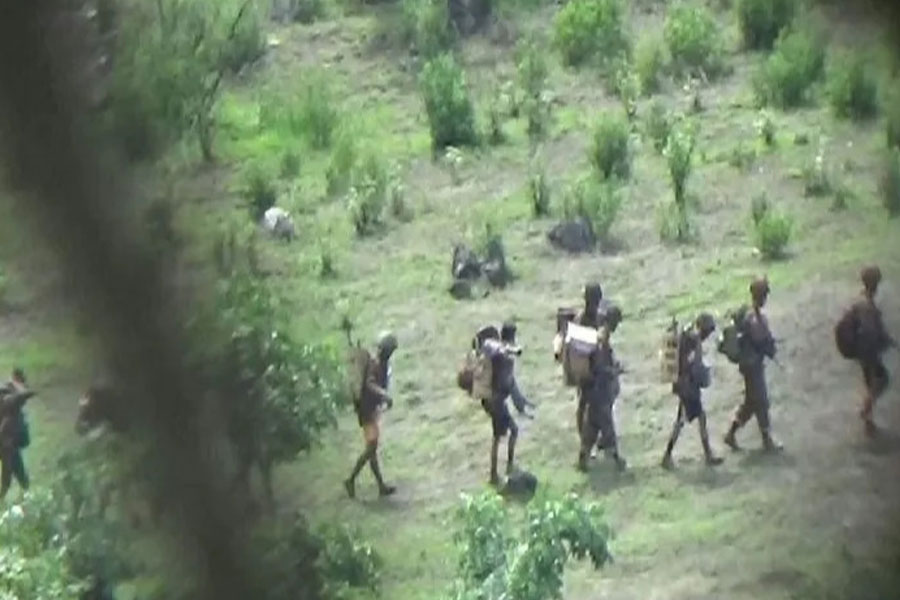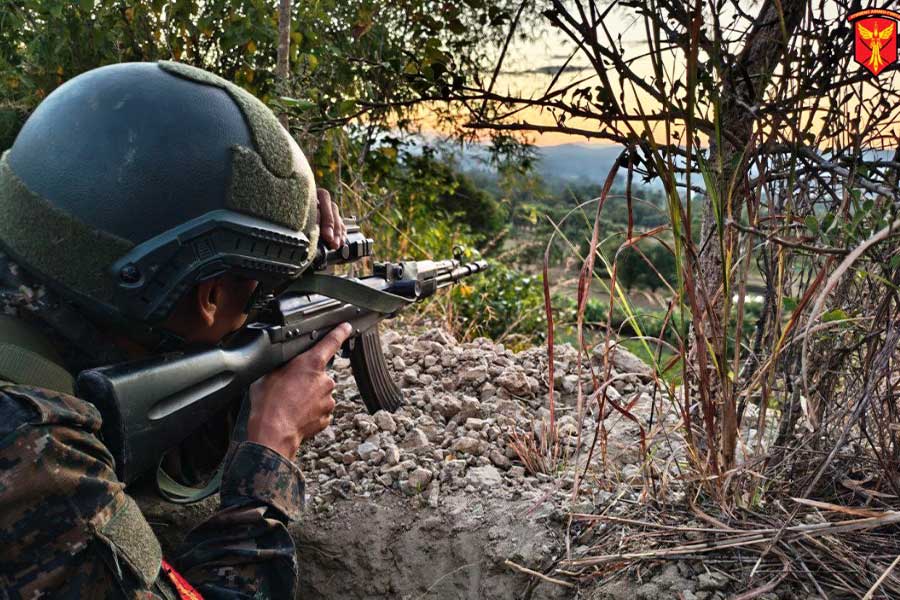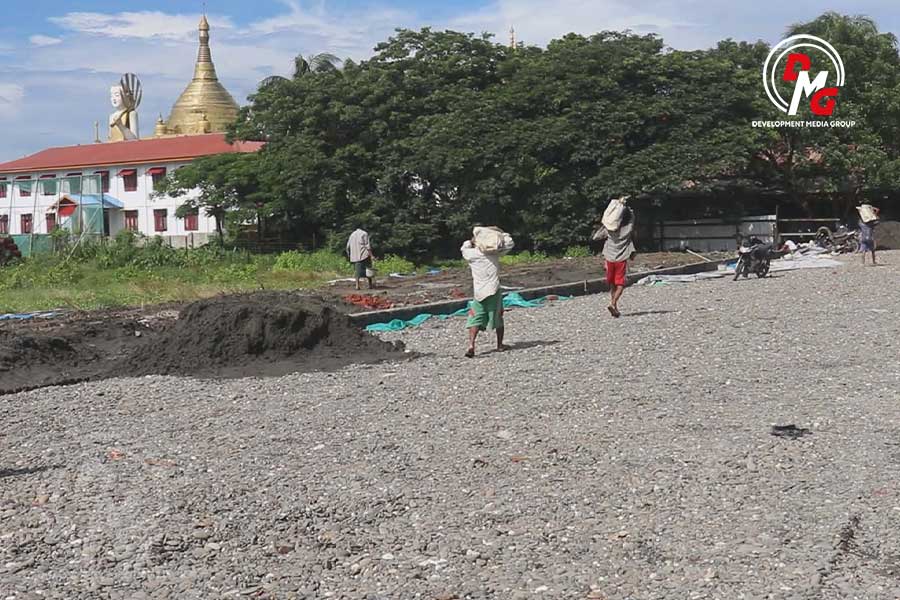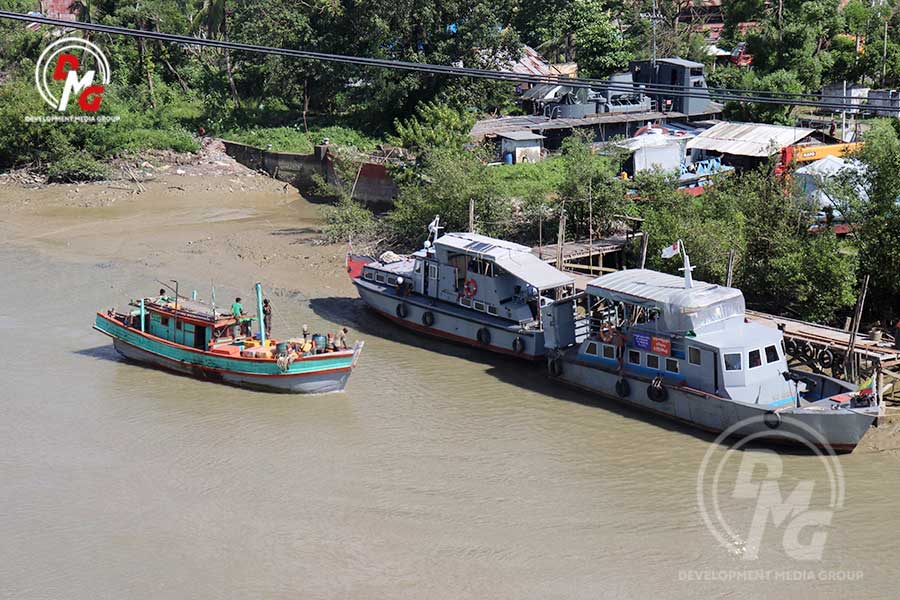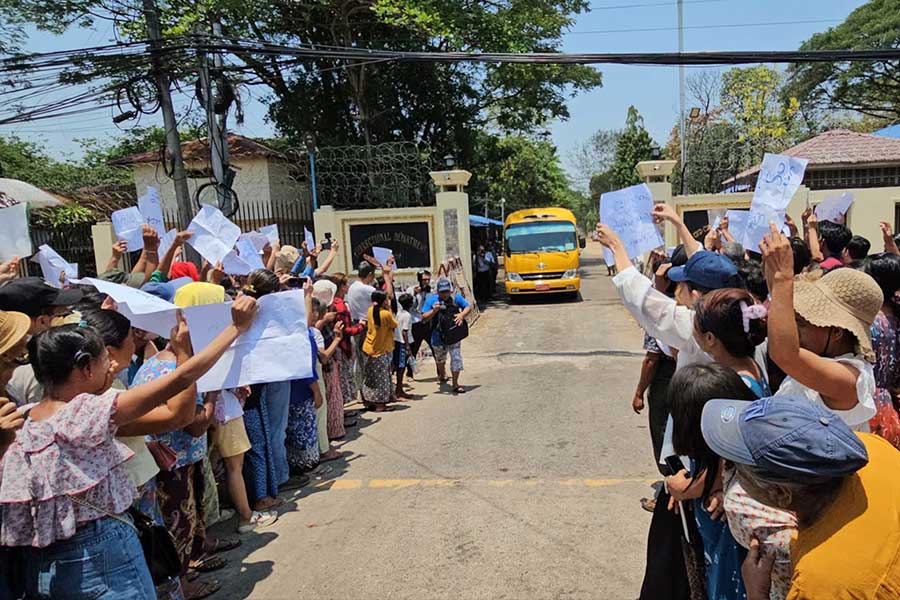- Junta launches major offensive to retake strategic Mawchi mining town
- Extreme poverty drives Sittwe residents to dismantle abandoned houses for income
- Weekly Highlights from Arakan (Feb 23 to March 1, 2026)
- Over 300 political prisoners freed from 10 prisons nationwide
- DMG Editorial: Between War and Opportunity - A New Border Reality for Bangladesh and Arakan
Min Aung Hlaing blames ‘unscrupulous businessmen’ for kyat’s dramatic depreciation
Junta boss Min Aung Hlaing has again blamed “unscrupulous businessmen” for the country’s ailing currency as the kyat has continued to plummet against the US dollar over the past month.
01 Aug 2024
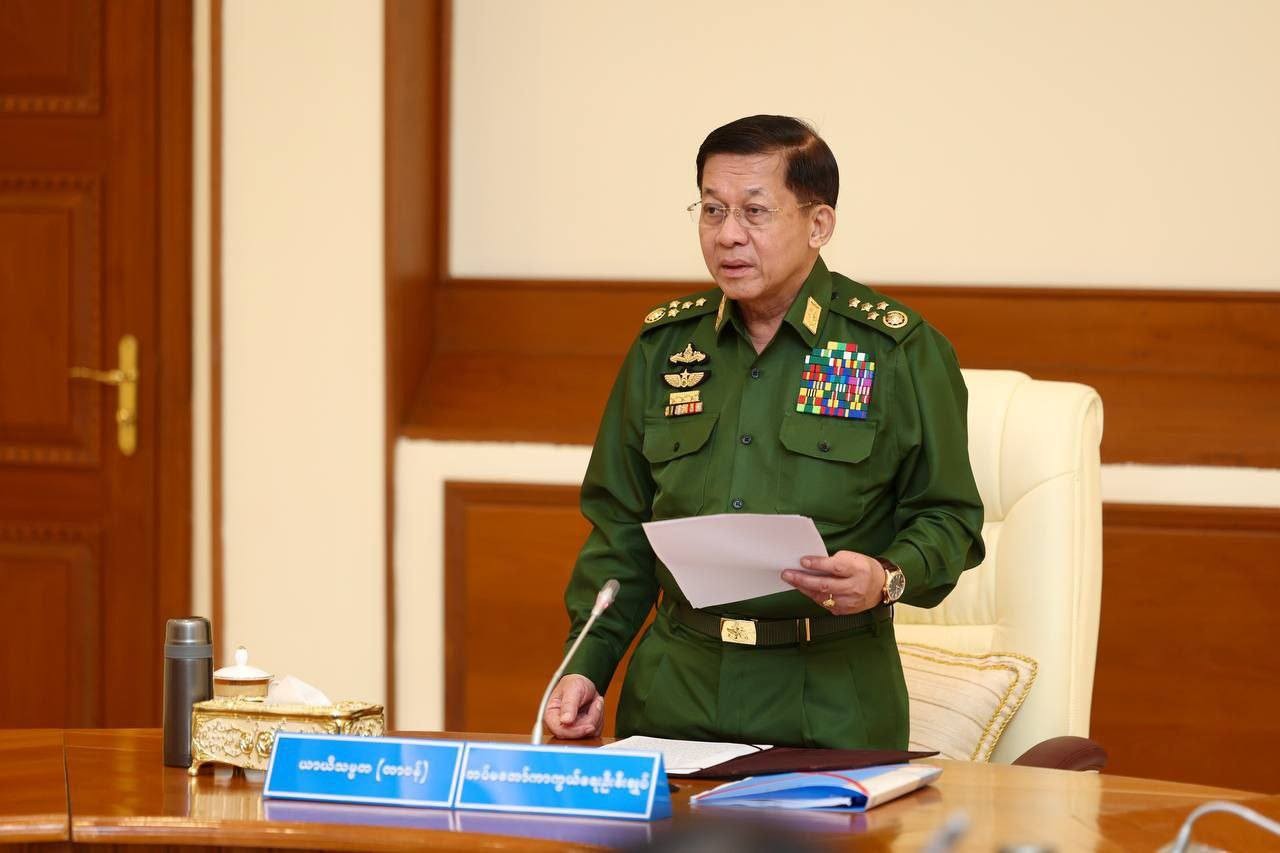
DMG Newsroom
1 August 2024, Sittwe
Junta boss Min Aung Hlaing has again blamed “unscrupulous businessmen” for the country’s ailing currency as the kyat has continued to plummet against the US dollar over the past month.
Speaking at a National Defense and Security Council (NDSC) meeting on Wednesday, Min Aung Hlaing accused business owners of manipulating the market, leading to steep depreciation of the kyat and gold price increases.
“Fluctuations are not a problem as long as a currency is strong,” Min Aung Hlaing told the NDSC meeting.
The exchange rate was around 5,400 kyats per dollar on Thursday though the kyat was trading at around 1,300 kyats to the greenback in the month before the coup in February 2021. The kyat traded at around 140 per Thai baht on Thursday, up from around 40 kyats in the month before the coup.
The price of gold has hit a record high in the domestic market, meanwhile, reaching over 6 million kyats per tical for 24 karat gold.
One business owner from Sittwe said the coup was the root cause of Myanmar’s economic woes, adding that Min Aung Hlaing was just looking for scapegoats.
“International sanctions have caused inflation and depreciation of the kyat. Banks can’t operate due to instability, and foreign investments left Myanmar after the coup. But Min Aung Hlaing has put the blame on businessmen.”
Myanmar’s economy has been in free fall since the military staged its coup more than three years ago, with hyperinflation and widespread unemployment affecting millions.
In a June report, the World Bank said poverty in Myanmar was more widespread than at any point in the past six years, citing the effects of the civil war between the junta and numerous anti-regime armed groups. The conflict has displaced more than 3 million people and the poverty rate reached 32.1 percent, the World Bank reported.
“The economic outlook remains very weak, implying little respite for Myanmar’s households over the near to medium term,” it said.
Min Aung Hlaing also told the NDSC meeting on Wednesday that his regime was working to stabilise rice prices in the market and ensure a steady supply of cooking oil and fuel.
However, even in major towns like Yangon, Mandalay and the capitals of regions and states, long queues are forming at filling stations due to limited supply.




